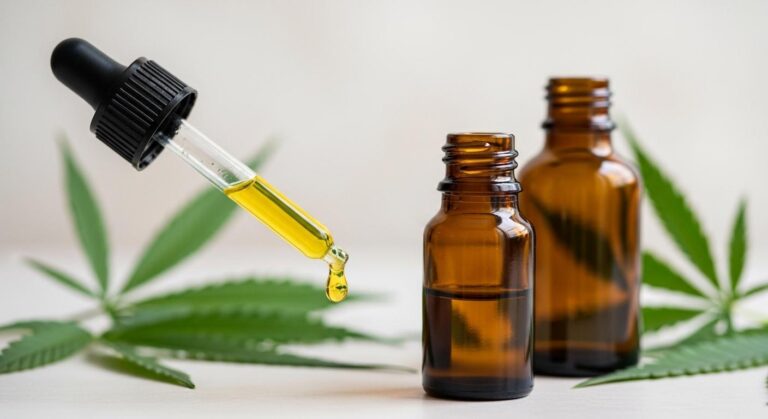Contents
- 1 Is Hemp Oil the Same as CBD Oil?
- 2 Introduction to Hemp Oil and CBD Oil
- 3 Botanical Differences Between Hemp Oil and CBD Oil
- 4 Extraction Processes and Production
- 5 Differences in Chemical Composition
- 6 Health Benefits and Uses
- 7 Legal Considerations and Regulations in Australia
- 8 Consumer Tips for Choosing the Right Oil
- 9 Conclusion and Key Takeaways
Is Hemp Oil the Same as CBD Oil?
Let’s venture into the green jungle that is the cannabis world, where the air is thick with questions like: Is hemp oil the same as CBD oil? These terms often cause more confusion than an online recipe’s comment section. At a glance, you might think these oils are twins separated at birth—or at least by extraction methods. But dive into their essence, and you’ll find they’re as different as night and day, or perhaps as different as your two favorite socks that somehow still work together.
Introduction to Hemp Oil and CBD Oil
At their core, both hemp oil and CBD oil derive from the cannabis plant, but that’s just about where the family resemblance ends. Hemp oil, also known as hemp seed oil, comes from the seeds of the hemp plant and is as innocent as a lamb when it comes to psychoactive effects. On the other hand, CBD oil is a product that involves cannabidiol extracted from the flowers, leaves, and stalks. And that’s where the magic—or mystery—begins.
Botanical Differences Between Hemp Oil and CBD Oil
The cannabis plant is like the great-great-grandparent of a sprawling family, with two main species: Cannabis sativa and Cannabis indica. Hemp plants, typically from the Cannabis sativa species, contain low levels of THC (that famous psychoactive compound from marijuana) and higher levels of CBD and other cannabinoids.
Hemp oil’s extraction process is straightforward, akin to squeezing juice from an orange—except here, it’s the seeds of the hemp plant. Meanwhile, CBD oil’s production takes a more elaborate approach—think of a heist movie, complete with high-tech gadgets—to carefully pull CBD from those leafy parts of the cannabis plant.
Extraction Processes and Production
To extract hemp seed oil, we use the cold-pressing method, a process that’s as simple as making grandma’s lemonade on a hot summer day. The seeds are pressed to release that golden, nutrient-rich oil that finds its way into beauty products and nutritional supplements.
CBD oil, however, requires a bit more glamour and precision. CO2 extraction is the star, providing a clean and potent CBD product, followed closely by ethanol extraction. It’s crucial that purity and potency are maintained—think of it as quality control for your morning coffee, just on a more molecular level.
Differences in Chemical Composition
Here’s where the plot thickens. Hemp oil carries with it a bounty of omega-3 and omega-6 fatty acids, much like a trusty multivitamin for your skin and diet. CBD oil, on the other hand, boasts cannabidiol (CBD) as its main star, with full-spectrum varieties containing trace amounts of THC and other cannabinoids—not enough to create psychoactive effects, but definitely enough to stir the pot, figuratively speaking.
These chemical differences define their uses: hemp oil for the skin and nutrition, and CBD oil for therapeutic relief across various areas. Yet, it’s this very distinction that sometimes blurs, leaving consumers scratching their heads.
Health Benefits and Uses
Hemp oil is your go-to for skincare, lending a hand to those fighting dryness or seeking a natural glow. It’s also a popular choice in the culinary world, adding essential fatty acids into the mix. CBD oil, though? It’s the overachiever of the cannabis family, linked to potential health benefits like pain relief, reducing inflammation, and more.
Evidence-based research continues to evolve, hinting at CBD oil’s potential in managing anxiety, depression, and even aiding with epilepsy. Yet, with these benefits come responsibilities—precautions to consider before diving headlong into CBD’s soothing embrace.
Legal Considerations and Regulations in Australia
Now, if you’re in Australia and keen to explore these oils, you’ll need to navigate a landscape as complex as a kangaroo’s hop. Hemp oil is widely available, but CBD oil requires more than a keen interest—it’s regulated by the Therapeutic Goods Administration (TGA), bearing rules as intricate as a spider’s web.
Buying CBD oil legally involves prescriptions and health consultations, making it a product not just anyone can pluck off the shelf. However, the winds of change are blowing, and the future might hold shifts as rapid as an emu’s sprint.
Consumer Tips for Choosing the Right Oil
When it comes to selecting your oil of choice, let’s channel our inner detective. Reading labels is paramount, and third-party testing seals the deal for quality assurance. Trusted brands exist, offering both hemp oil and CBD oil in health food stores across Australia.
Consult your healthcare professional before using CBD oil for medical purposes. It’s like asking for directions before embarking on a road trip—sometimes necessary to avoid getting lost on your wellness journey.
Conclusion and Key Takeaways
So, the next time someone asks, “Is hemp oil the same as CBD oil?” you can confidently smile and say, “Not quite.” While they share a botanical ancestor, their paths diverge significantly in uses, benefits, and regulatory status. Making informed decisions is crucial in a world abuzz with cannabis-derived products.
Armed with knowledge and a curious mind, you’re ready to navigate this green landscape with clarity and conviction. Who knows where your next cannabis adventure might lead?



